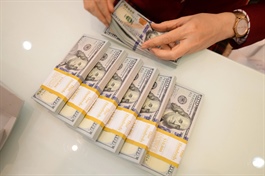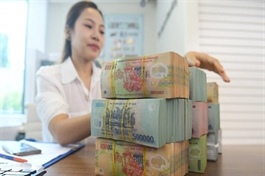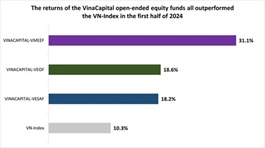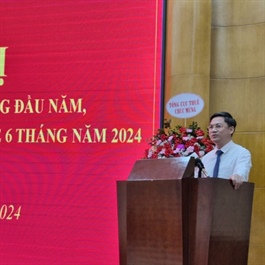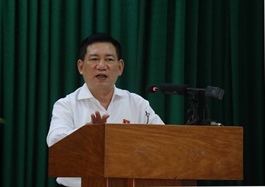Vietnamese firms resort to foreign markets for green capital
Vietnamese firms resort to foreign markets for green capital
Greening firms is a global trend, but Vietnamese companies have struggled to mobilize green capital locally. As a result, they are looking to foreign markets for green capital mobilization.
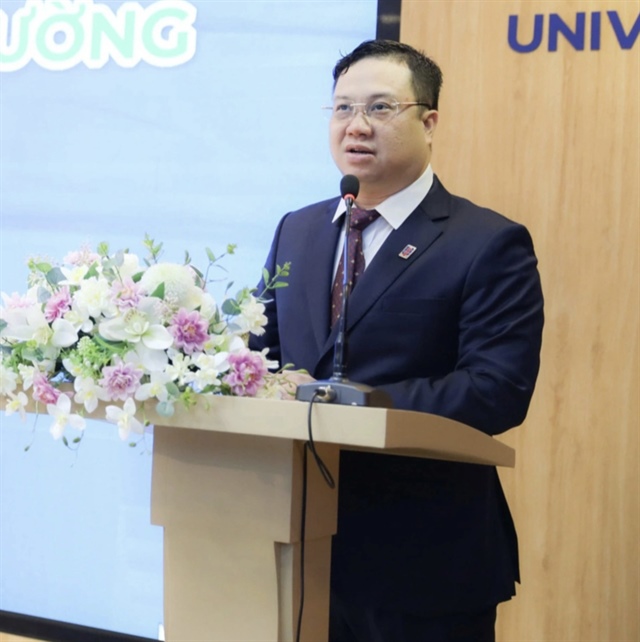
Nguyen Xuan Thanh, a lecturer at the Fulbright School of Public Policy and Management, speaks at a scientific conference in Ho Chi Minh City, July 18, 2024. Photo: Anh Hong / Tuoi Tre |
Nguyen Xuan Thanh, a lecturer at the Fulbright School of Public Policy and Management, stated at a scientific conference on 'Sustainable Development of Vietnam’s Financial Market,' held in Ho Chi Minh City on Thursday, that many firms are compelled to seek green capital from foreign markets, as this type of capital typically yields low profit rates and the concept is still unfamiliar to Vietnamese investors.
He assessed that Vietnam’s green and digital finance systems lag behind those of many countries in the world.
Multiple Southeast Asian nations have already issued legal frameworks allowing the development of digital finance and banking, while Vietnam has yet to follow suit.
Therefore, it is vital to have a breakthrough policy on green and digital finance in Vietnam.
Nguyen Duc Lenh, deputy head of the State Bank of Vietnam branch in Ho Chi Minh City, also stated that green credit currently reaches a modest rate of some 4.5-5 percent against the total outstanding credit.
The journey of sustainable economic growth should go hand in hand with green - digital - circular economic transition, Lenh said.
The central bank has launched a series of action programs for the banking industry to boost green economic growth.
Meanwhile, commercial banks are ramping up their green credit to green projects in the energy and agriculture fields, as well as other activities producing green products.
“The banking industry has recently seen a positive growth pace of green credit due to big pressure for green credit development," Lenh said.
"Specially, firms exporting goods to Europe and the United States are paying more attention to green origins, contributing to driving up green credit expansion."
|
|
| Associate Prof. Dr Nguyen Duc Trung, president of the Ho Chi Minh City University of Banking, delivers his speech at a scientific conference on sustainable financial market development in Vietnam, July 18, 2024. Photo: Anh Hong / Tuoi Tre |
Appropriate policy for sustainable financial market
Dr. Nguyen Anh Vu, head of the finance faculty at the Ho Chi Minh City University of Banking, said that since 1992, three pillars, including banking, insurance, and securities, have thrived stably.
To develop sustainably, these industries need incentives, appropriate policies, and favorable legal and investment environments, Vu said.
Besides, firms should change their perceptions to build a transparent financial information system that can meet all Vietnamese and international standards to help local firms access capital and diversify funding mobilization sources.
Associate Prof. Dr. Nguyen Duc Trung, president of the Ho Chi Minh City University of Banking, observed that new technologies have impacted both the financial market and its governance.
He asserted that developing financial infrastructure, elevating the position of the financial market, and promoting green finance present both opportunities and challenges for Vietnam’s financial system.
He underscored the need for timely measures and relevant policies to support the local financial market.









